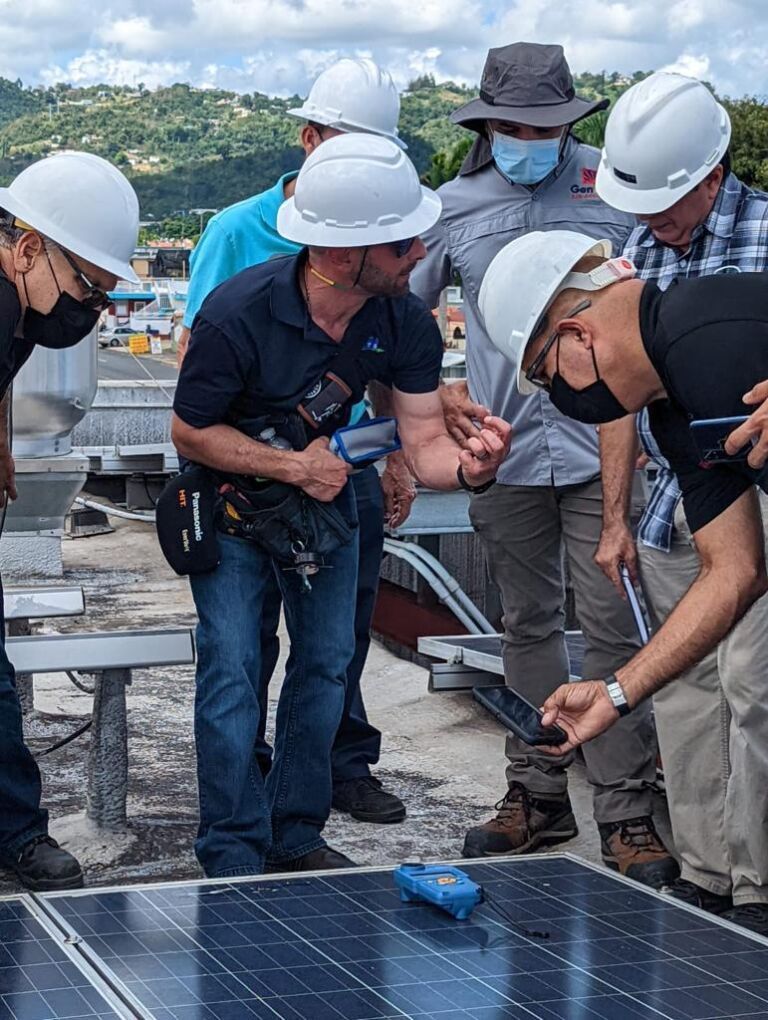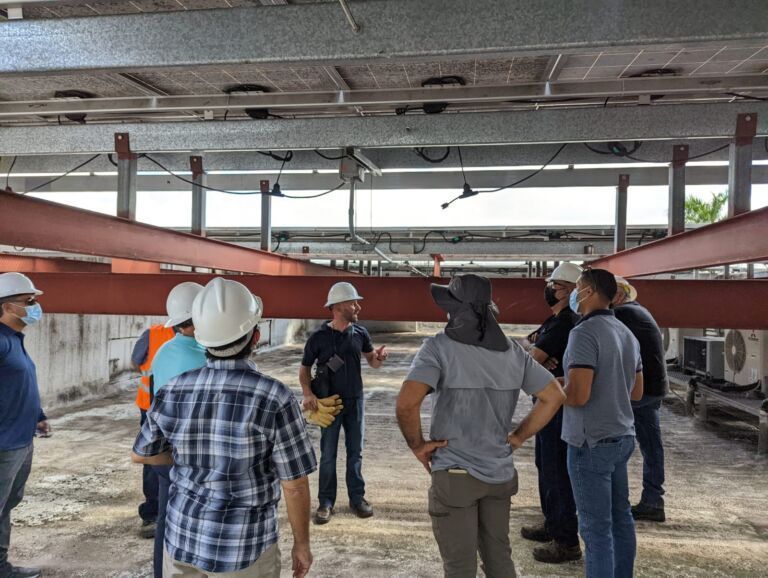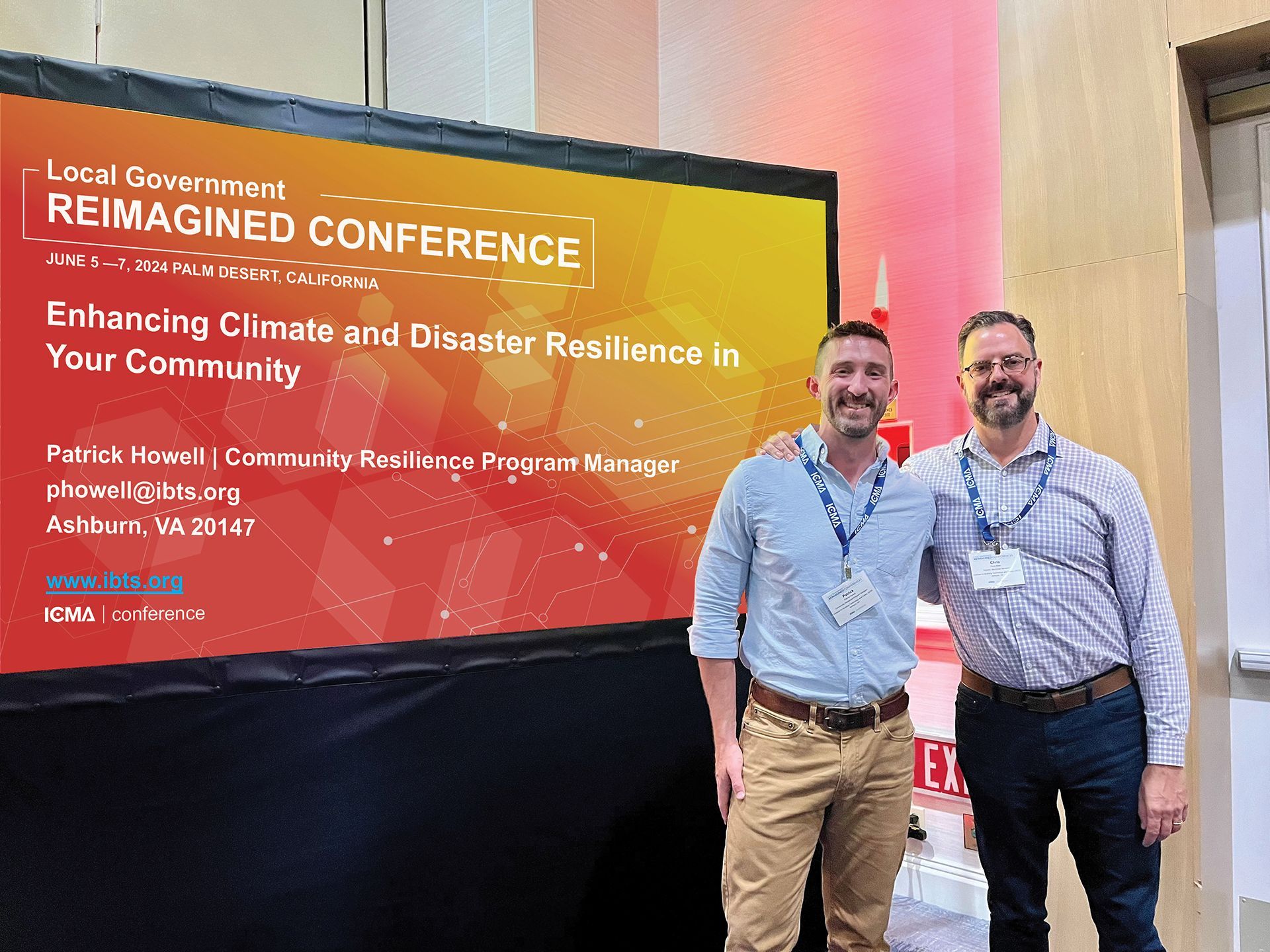IBTS, IREC Offer Free Solar Training to Professionals on the Island
Share this article:

The two-day class provided classroom and hands-on rooftop instruction to licensed electricians and professional engineers on the Island on solar quality assurance practices
(June 2, 2022 – Caguas, PR) Fulfilling its mission of promoting the economic development and well-being of communities, and as a pillar of renewable energy in Puerto Rico, the Institute of Building Technology and Safety (IBTS) recently joined forces with the Interstate Renewable Energy Council (IREC) to provide a continuing education course on solar photovoltaic (PV) quality measures aligned with the programs of the New York State Energy Research and Development Authority (NYSERDA).
IBTS provided the course to licensed electricians and professional engineers in Puerto Rico, free of charge. This training is part of the workforce development component of the Puerto Rico Solar Business Accelerator, a program co-led by IREC and PathStone Corporation and sponsored by the U.S. Economic Development Administration.
“We are proud to be able to promote—through the alliance with IREC—this free training session for professionals in the energy and sustainability sector,” said Agnes Crespo Quintana, director of IBTS’ Puerto Rico Region office. “As a nonprofit organization committed solar quality, compliance, and safety, we are pleased this effort will result in improving the quality of solar installations and positively impact Puerto Rico’s community of engineering and electrical professionals.”
The Solar Quality Assurance/Quality Control (QA/QC) course was held on June 1 and 2 in the Autonomous Municipality of Caguas. Students who completed the course received continuing education units (CEUs) approved by the College of Engineers and Surveyors of Puerto Rico (CIAPR, in Spanish) and the College of Professional Electrician of Puerto Rico (CPE, in Spanish).

On the first day, attendees participated in a six-hour session at Huertas College. IBTS Energy Services Program Manager Rudy Saporite discussed the fundamentals photovoltaic installation review and inspection, as well as common deficiencies, ways to identify them, and recommend corrections. The second day focused on photovoltaic installation protocols where students put into practice the theoretical foundations learned in the classroom in a hands-on session on the roof of Panadería la Boriqueña, located on Avenida Turabo, Esquina Calle Degetau, Caguas.
Carlos A. Velázquez, director of IREC in Puerto Rico explained how the need for the course was identified.
“We have been listening to the needs of the solar industry in Puerto Rico to collaborate in its continuous improvement; it was the industry that has told us that this type of training is of utmost importance to ensure quality in photovoltaic installations,” Velázquez said.
About IBTS
With a mission to strengthen communities, IBTS is a trusted advisor and ally to local, state and federal governments. IBTS provides solar technical assistance, training and workforce development services, and is the nation’s largest solar quality assurance provider, having completed more than 70,000 inspections and plan reviews nationwide, including more than 7,500 in Puerto Rico.
IBTS solar services guarantee the proper planning, implementation and evaluation of energy and sustainability projects and programs, optimizing the performance of solar installations and reducing their risk, as well as confirming the efficient and effective use of public funds.
In addition to its expertise in solar quality verification, IBTS’s Puerto Rico office provides services such as: administration of federal funds; disaster planning, mitigation and recovery; municipal planning, and resilience. As a non-profit organization, IBTS’s work is guided by a Board of Directors with representatives from the Council of State Governments (CSG), the International Association of City/County Administration (ICMA), the National Association of Counties (NACo), the National Governors Association (NGA), and the National League of Cities (NLC).
For more information about IBTS, you can visit: www.ibts.org or follow IBTS on Facebook, LinkedIn, or Twitter.
About IREC
The Interstate Renewable Energy Council (IREC) lays the foundation for the rapid adoption of clean energy and energy efficiency for the benefit of people, the economy and our planet. Their vision is a 100% clean energy future that is reliable, resilient and equitable. IREC develops and promotes the regulatory reforms, technical standards, and workforce solutions needed to enable the optimized integration of clean and distributed energy resources. IREC has been a trusted organization for its expertise as an independent entity in the field of clean energy for almost 40 years, since its foundation in 1982. For more information, visit www.irecusa.org or follow IREC on Twitter, LinkedIn, or Facebook.





